By Ferrell Foster
Independence Day is always special, but this year it is even more treasured. On July 4, 1776, the founders of this nation laid down some principles that would shape this people for generations. Now that we have added Juneteenth as a federal holiday, we can see more clearly that bringing those first principles to fruition is a process.
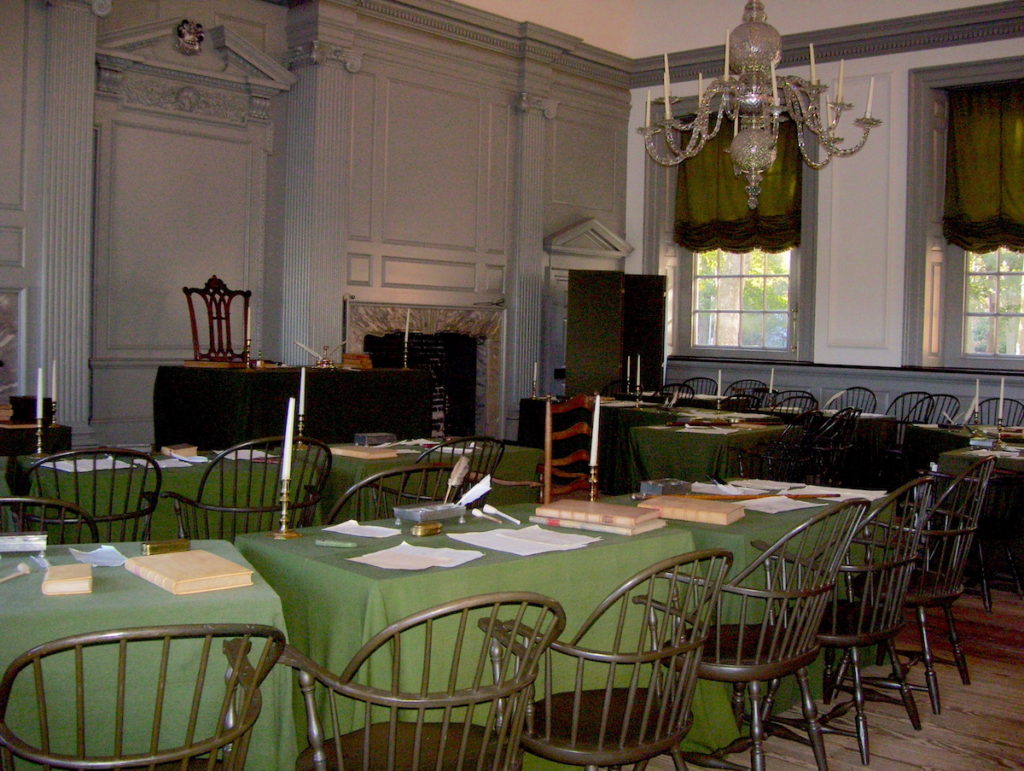
“We hold these truths to be self-evident, that all men are created equal, that they are endowed by their Creator with certain unalienable Rights, that among these are Life, Liberty and the pursuit of Happiness” (U.S. Declaration of Independence).
Let’s put those words in chronological context:
1776 – The authors didn’t really mean “all men” and, of course, not women. Slaveholders were among the signers.
1861 – That disconnect eventually led to a Civil War, the most deadly war for Americans in their history.
1862 – President Lincoln started broadening freedom with the Emancipation Proclamation.
1865 – Slaves in Galveston learned of their freedom — Juneteenth.
That’s 89 years from the signing of the Declaration to Juneteenth. Countless people suffered and died to make that progress.
But any student of history knows that only chattel slavery (humans as owned property) ended in 1865; a new type of slavery emerged eventually grouped under the term of Jim Crow laws — varied rules that sought to keep African Americans in a subservient position.
1954 – The U.S. Supreme Court, in Brown v. Board of Education of Topeka, ruled that state laws establishing racial segregation in public schools was unconstitutional.
1955 – Rosa Parks says “no” to sitting at the back of a bus in Montgomery, Ala., and local pastor Dr. Martin Luther King, Jr., emerges as the bus boycott’s voice and eventually the nation’s.
1964 – In the wake of the assassination of President John Kennedy, the Civil Rights Act of 1964 outlawed discrimination based on race, color, religion, sex, and national origin.
1965 – Congress passed and President Lyndon Johnson signed the Voting Rights Act of 1965 prohibiting racial discrimination in voting.
That’s 100 years between the first Juneteenth and the Voting Rights Act.
The words of the Declaration of Independence did not free slaves; those words laid the philosophical and national foundations by which people could work to wrest their freedom from the power of oppressors.
On July 4 we do not celebrate freedom achieved; we celebrate freedom made possible. And in doing so we remember the long years of struggle from Independence Day to Juneteenth and then to the Voting Rights Act.
And this freedom is not a liberty to do whatever an individual wants; it is a freedom to enjoy the God-given rights of life, liberty, and the pursuit of happiness. And, since all people are of equal value, we pursue those three things in consideration of the same pursuit by others.
All people (Black, Hispanic, Asian, White … any gender … from any nation) . . .
. . . are created equal (no group is superior) . . .
. . . they are endowed by their Creator (this isn’t something a few people just made up) . . .
. . . with certain unalienable Rights, that among these are Life, Liberty and the pursuit of Happiness.
We celebrate 1776 and 1865 and 1965, but we know there is still more to be done, and that includes right here in Waco.
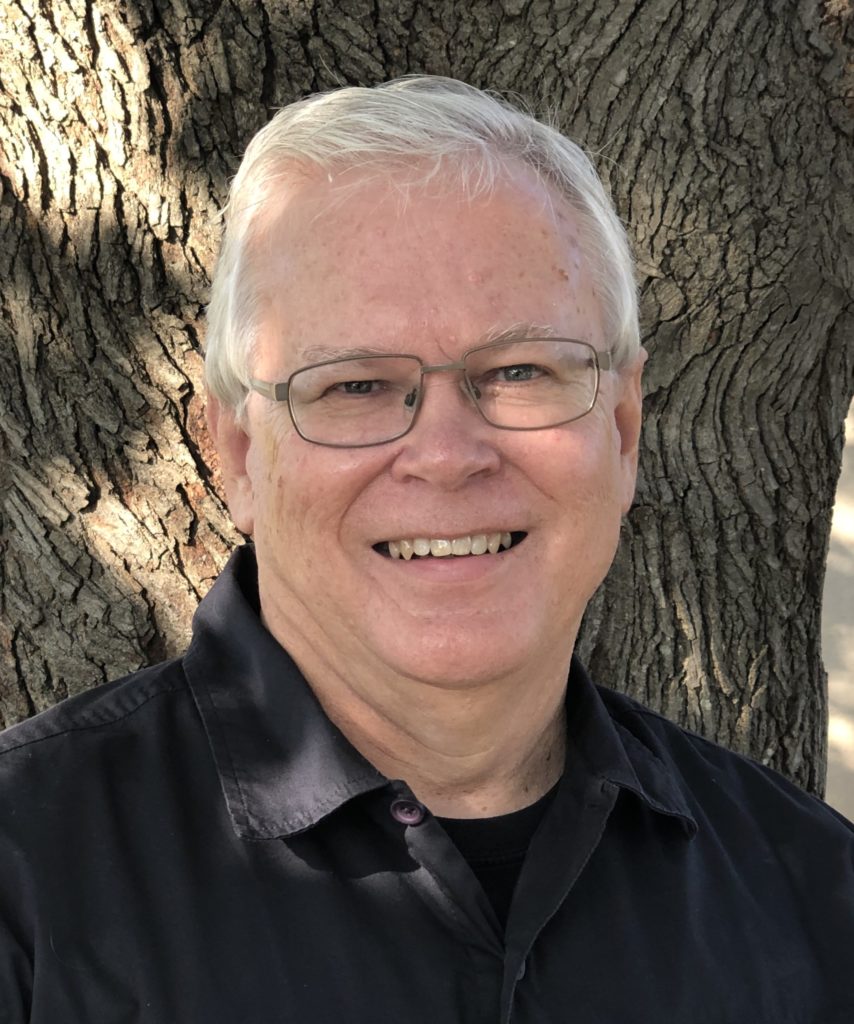
Ferrell Foster is acting executive director of Act Locally Waco and is senior content specialist for care and communition with Prosper Waco.
The Act Locally Waco blog publishes posts with a connection to these aspirations for Waco. If you are interested in writing for the Act Locally Waco Blog, please email Ferrell Foster at [email protected].
By Dr. Peaches Henry
I grew up in Palestine, about two hours due east of Waco, where Juneteenth was a huge holiday in the Black community and in my family as well.
Abraham Lincoln’s Emancipation Proclamation became effective Jan. 1, 1863, declaring “that all enslaved persons in the Confederate States of America in rebellion and not in Union hands were freed.” Yet, it was not until two years later, June 19, 1865, that enslaved people in Texas heard the news of their freedom in Galveston. One year later, the first Juneteenth or Jubilee Day was celebrated. Celebrations continue in Texas and across the nation.
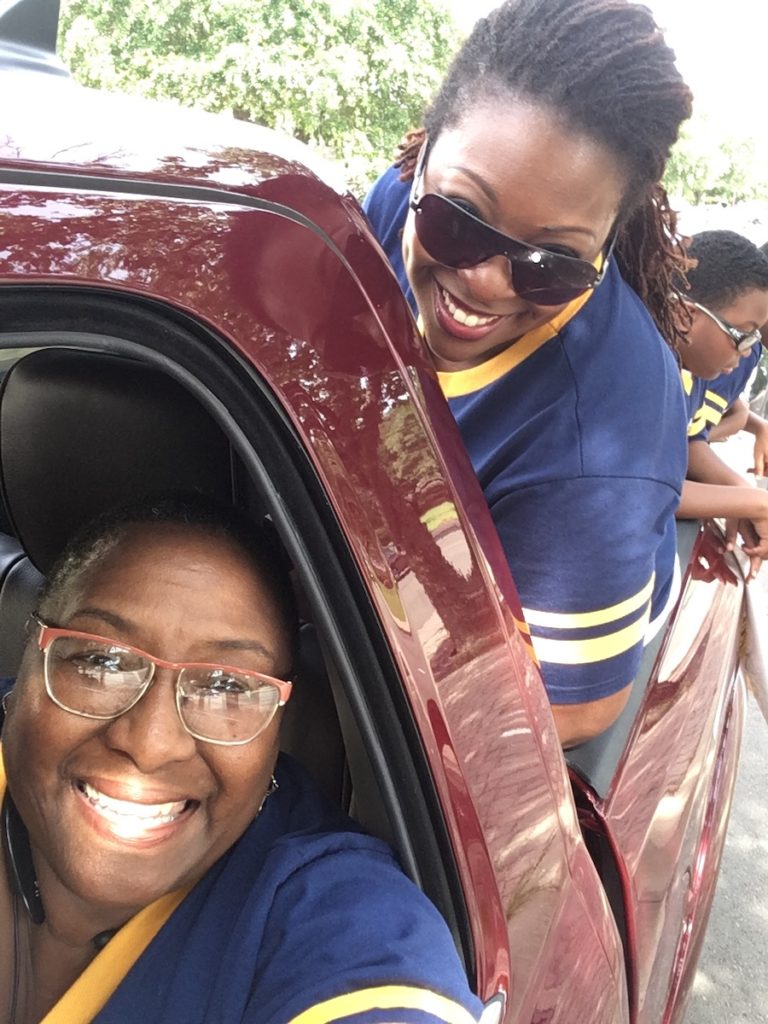
From my earliest days, I remember my family celebrating Juneteenth with a huge family celebration. The birthdays of a great aunt and great uncle sandwiched the holiday falling on June 18 and 20. For years, I thought it was so great that the whole county celebrated Aunt Lila’s and Uncle Monroe’s birthdays.
My extended family on my mama’s side would head out to the country home of Aunt Lila and Uncle Monroe on Juneteenth. Kinfolk from the big cities of Dallas, Fort Worth, and Houston drove in. Grownup cousins who had moved away from Palestine came back to show off their sophistication.
The men would stay up all night barbecuing briskets, ribs, links, and chicken. The women would bring homemade pound cakes, teacakes, sweet potato pies, and peach cobblers along with fried chicken, turnip and collard greens, potato salad, pinto beans, homemade biscuits, and cornbread. Red cream soda and whatever it was that the menfolk had in those brown paper bags out by the pit were the drinks of choice.
The children would go out into the watermelon patch using the “thump” technique to select the ripest and sweetest melons possible. And of course, there was a chocolate birthday cake to mark the birthdays of Aunt Lila and Uncle Monroe. There was always a prayer — over the food, over the family, over the children.
The family spent the day visiting and catching up on everyone’s lives. The great-great aunts, great-aunts, and regular aunts made the kids’ lives a misery with sloppy, loving kisses and mushy bosom hugs that we endured, because they were followed by nickels and dimes pulled from the knotted corners of handkerchiefs.
Kids roamed the still working farm riding the old horse who pulled my uncle’s plow, bothering the chickens in the coup looking for eggs to collect, hiking into the nearby woods, playing baseball with rocks for bases, and grabbing a chicken leg here or a slice of melon there. My big mama and her sister, the birthday girl, circled up under a shade tree (there was no air-conditioning on the farm) with their daughters my mama, her sisters, and first and second cousins, and they traded family gossip (warning us kids away from listening to “grown folk” talk with looks that could freeze Kool-Aid.)
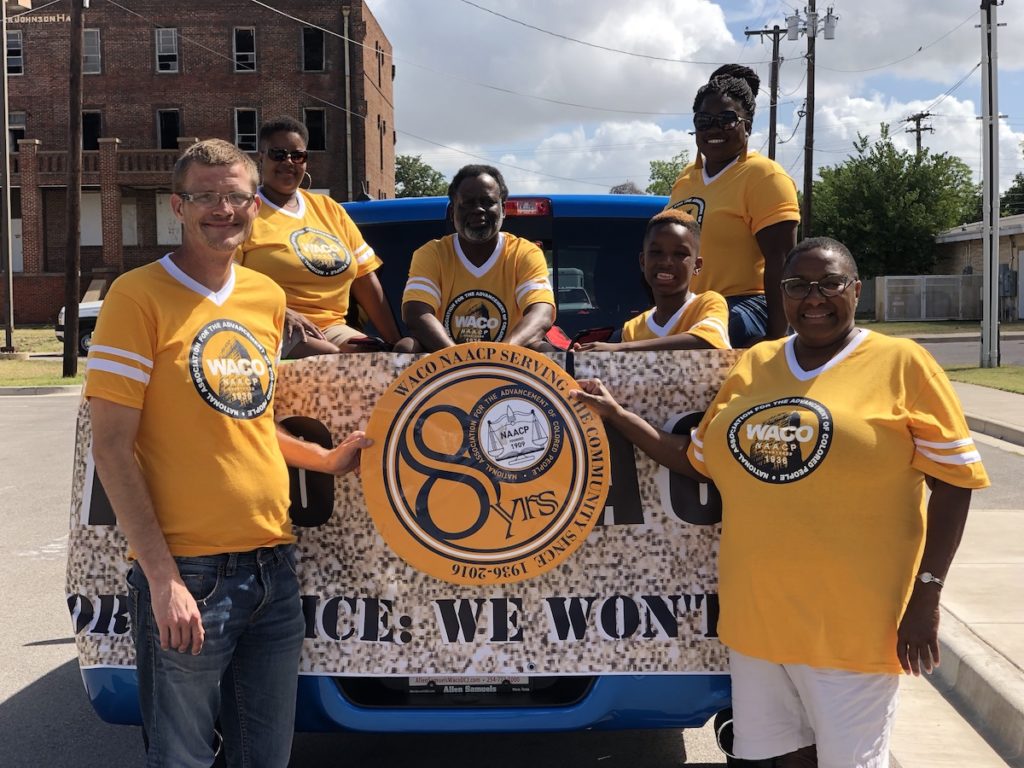
The men gathered under a different shade tree to play dominoes — loud, table hitting, trash-talking dominoes. I thrilled to witness these matches and was delighted when I was given the job of keeping score. I sat between my two favorite uncles (who I learned as an adult were not uncles but second cousins) and kept score like I was scorekeeper for the World Series.
At the end of the day, parents gathered up tired children, wiped as much dirt and food off them as possible, kissed everyone goodbye, and promised to see everyone next Juneteenth (“if the Lord say the same”). On the 20-minute trip back to town (after all, Palestine was the county seat), we three kids would fall asleep to my parents re-hashing all the family gossip my mama had collected. Year after year, I grew up to the predictable rhythms of these Juneteenth celebrations.
Imagine my surprise when I arrived at the University of Texas at Austin to discover that my mostly white classmates had no idea what Juneteenth was or what it celebrated and commemorated. I considered their ignorance their loss and returned to Palestine throughout my undergrad years to celebrate Juneteenth at Aunt Lila’s and Uncle Monroe’s farm.
I was more forgiving of my grad school classmates. Afterall, they were northerners and not expected to understand Texas culture. I patiently explained Juneteenth to them and invited them to celebrate with me in Central Park.
Somewhere along the way, Juneteenth became a national holiday with African Americans around the country celebrating the day possibly as a result of transplanted Texans marking it. Even communities whose celebrations have diminished over the decades have been revived.
The holiday is now marked with picnics, parades, service projects, and Ms./Mr. Juneteenth pageants. In 2020, Juneteenth was observed with protests for social justice. Wacoans have been celebrating Juneteenth for decades and have revived the holiday in recent years with participation in events steadily increasing.
A measure of the holiday’s new status is evident in a feature story on Juneteenth pageants in the The New York Times. The 2020 film, “Miss Juneteenth,” directed by Channing Godfrey Peoples, is being re-released in theaters this week. And wonder of wonders, both the United States Senate and the House of Representatives passed legislation making Juneteenth a national holiday; the bill heads to President Biden’s desk to be signed into law in time for Juneteenth on Saturday.
At the local level, City Councilwoman Andrea Barefield is working on making Juneteenth a legal city holiday.
Juneteenth gives us a moment to reflect on our ability as a country to course correct as we move toward the promise enshrined in the document of our other Freedom Day that all people “are created equal, that they are endowed by their Creator with certain unalienable Rights, that among these are Life, Liberty and the pursuit of Happiness.”
Let us celebrate!
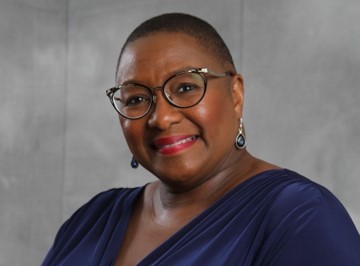
Peaches Henry is president of the Waco NAACP and an English professor at McLennan Community College. She is the proud mother of Corey Henry, who is practicing law in New York. She is currently training her two-year old Juneteenth-born Black lab Samson.
The Act Locally Waco blog publishes posts with a connection to these aspirations for Waco. If you are interested in writing for the Act Locally Waco Blog, please email Ferrell Foster at [email protected].
By Ashley Bean Thornton
After attending two Juneteenth celebrations and the terrific mural celebration party at the East Waco Library, I have seen far more Black people in the last month than I have seen in the 24 months before that combined.
Does that last sentence make you cringe a little? It made me cringe a little to write it. Do I sound like I’m bragging about being the cool White person who hangs out with Black people? Am I supposed to say “Black” or should I say “African-American?” Was I intruding? Would the Black people have liked it better if no White People had come? Should I write a post that focuses only on Black/White racial relationships? How will that make people of other races and ethnicities feel?
When it comes to race, I second guess myself coming and going. That’s OK though. If Waco is going to be a great place to live for every person of every level of income, more of us have got to wade into the sometimes fun, sometimes fascinating, often uncomfortable waters of learning more about other races and ethnic groups. I think Maya Angelou’s advice applies here, “Do the best you can until you know better. Then when you know better, do better.” With that in mind here are five things I’ve done in the last few years that I feel like have helped me “know better.” I recommend them to you, my fellow White people.
1. Shop for kids’ books – Go to Barnes & Noble and try to find a baby book or a kids’ book with an other-than-white person on the cover. I did, and it was shocking to me how few choices I had. Once this opened my eyes I started noticing Black/White differences in all kinds of advertising, especially local advertising. Books and advertising influence our thinking, especially if we don’t notice that they are slanted.
2. Read Some of my Best Friends are Black by Tanner Colby and The New Jim Crow by Michelle Alexander – The Colby book is an easy read by a white man who grew up in the South. It’s a very accessible, somewhat irreverent, look at some of our foundational institutions – education, housing, church – and how they have contributed to our current race relations (or lack thereof). The New Jim Crow is a challenging read. I didn’t agree with every word of it, but it broke open my thinking about crime and race. Everyone should read this book.
3. Watch “Race the Power of an Illusion” – This is a 3-Part documentary about race in society, science and history. It’s a little hard to find, but they have it at the Baylor library. (The Waco-McLennan County Libraries have ordered a copy. It should arrive sometime July 2013.) The information on the science of race and the section on housing were the most interesting to me. It shares a historical perspective that I bet most White people don’t know, but should.
4. Attend a Community Race Relations Coalition (CRRC) meeting – Waco is lucky to have a thriving group of people who care about promoting good conversations about race. I recommend their regular “Dinner and a Movie” meetings as a good way to ease into the conversation. Last Valentine’s Day, for example, they had a full house to watch “Guess Who’s Coming to Dinner?” Steve and Kathy Reid, of Truett Seminary and the Family Abuse Center respectively, led an honest, thought-provoking conversation about bi-racial marriage.
5. Attend a Black church…more than once — A few years ago the CRRC organized a “Church Swap.” Black people went to White churches and White people went to Black churches for three months. Attending a Black church for several Sundays gave us time to get past the initial shock-factor of a completely different worship style, to meet a few people, to learn some of the songs and to get to the point where we were actually worshipping instead of just observing. That experience did more to make me comfortable with being “the only white person in the room” than anything else I have ever done. I highly recommend it.
That’s my list of five? What are yours?
